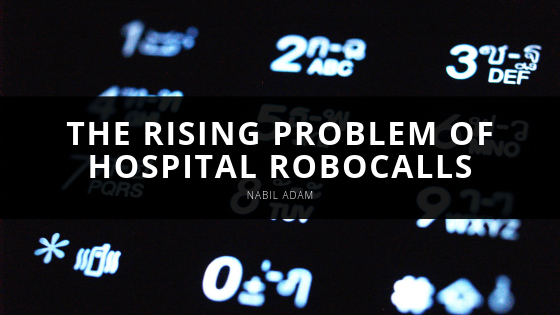A major hazard has become a serious danger to the healthcare industry. Although not many have been informed about this danger, it’s an issue that must be taken very seriously. Every day, people are spammed with robocalls. This type of spam is annoying, but over within a few minutes after hanging up. Unfortunately, it’s a different story for hospitals.
How robocalls affect hospitals
Robocalls consist of recorded voices calling random numbers offering to sell something and are usually a scam. The calls can come from all over the world and can reach millions of numbers through the internet, including hospitals. The problem is, normally people simply hang up and only have to sacrifice a few moments of their day. For hospitals, a few moments could mean life or death. There has been a recent rise in the number of spam robocalls that use up valuable hospital time and are getting in the way of a hospital’s ability to answer to real emergencies.
While the average person receives a robocall possibly once or twice a week, facilities like the Boston-based Tufts Medical Center reported receiving more than 4,500 robocalls in just two hours on April 30, 2018. Another facility, the H. Lee Moffitt Cancer Center and Research Institute received more than 6,600 times in the span of 90 days, which took up an estimated 65 hours of hospital response time. This puts many emergency calls in danger.
The possible solutions
Many people would argue that blocking the numbers would be the easiest solution. Unfortunately, this is much easier said than done. A lot of the time, the calls are disguised with local area codes and robocalls often change their numbers and their methods. There is no way for a hospital worker to know whether the call is real or not.
Hospitals are trying to think of ways to identify scam calls before they answer or block them before they call. It will take time, but the FCC recently gave the vote to give carriers the freedom to block robocalls by default. Unfortunately, it’s still unknown whether any major carriers will use their newfound abilities to blanket-block robocalls. This solution may work for regular people, it could be too risky that hospital could potentially balk blocking calls and real calls could be flagged as a spam call, which could lead to a serious injury or death.
The only solution of value would be Congress passing legislation to cut down the number of robocalls.

